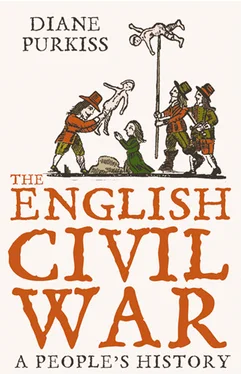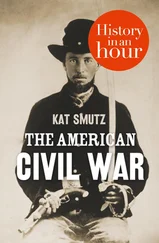Eight of Cromwell’s children survived infancy, but his eldest son Robert suffered an accident at school in Felsted in May 1639 and was buried there, at seventeen. Recalling this twenty years later, Cromwell recalled that ‘when my eldest son died, [it] went as a dagger to my heart’. It was this sympathy with parents who had lost a child which led Cromwell to write so warmly to the bereaved during the war. And yet Cromwell’s son’s death draws our attention to the troubled aspects of his childhood and youth. Because early modern men were supposed to see themselves as their fathers over again, for a son to be truly adult, he had to somehow push his father aside in order to take his place. The death of a father or of a son could induce an identity crisis. This sounds abstruse, but it is exactly the kind of question encouraged by the work of Thomas Beard, Cromwell’s schoolmaster, whose book The Theater of Gods Judgements proposed that reprobates are punished for their sins in this life as well as the next. Struck down by bolts of lightning on their way home from church, the sinful begin their sojourn in hell and act as an example to the living.
Cromwell’s mother Elizabeth Steward was thirty-four when Oliver was born. Before she married Cromwell’s father, she had been the wife of John Lynne of Bassingbourn, and had a daughter called Katherine who died as a baby. From the Lynnes she inherited the brewing-house whose association with Cromwell later writers found so rib-ticklingly funny. Her father was a solid gentleman-farmer who farmed the cathedral lands of Ely. Clarendon called her ‘a decent woman’ and an ambassador praised her as ‘a woman of ripe wisdom and great prudence’. Cromwell, as the only surviving son, was forced to abandon his Cambridge college and return to the household on his father’s death. But he returned not as a child, to be under his mother’s governance, but as head of that household, effectively usurping his father’s place. Elizabeth Steward Cromwell formally combined her household with her son’s in the late 1630s, along with his youngest sister Robina. She never left him again, and remained such a key part of his circle that everyone who knew him knew her too. During the war, when Cromwell was desperate for money and reinforcements, his mother wrote, crossly, to a cousin: ‘I wish there might be care to spare some monies for my son, who I fear hath been too long and much neglected.’ When he moved from his London lodgings to Whitehall as Protector, she went with him. Elizabeth Cromwell Senior did not enjoy the palace; its splendours did not impress her. She was more concerned about her son; musket fire made her tremble for him, lest it be an assassin’s bullet. She did not die until she had seen her son become Lord Protector. Elizabeth Cromwell was eighty-nine at her death late in 1654. Her health had been failing for some time, and Cromwell put off a visit to Richard Mayor: ‘truly’, he wrote, ‘my mother is in such a condition of illness that I could not leave her’. Thurloe recorded her last blessing to her son: ‘The Lord cause his face to shine upon you and comfort you in all your adversities, and enable you to do great things for the glory of your most high God.’ She was given a funeral at Westminster Abbey, illuminated by hundreds of flickering torches.
A mix of frustrated social ambition and a longing for absolution, together with the strain of being thrust early into the role of family carer and provider, may explain the spiritual crisis which overtook Cromwell towards the end of the 1620s. Although such crises were commonplace, this was because stories of reprobation and salvation were among those most available to people trying to negotiate complex feelings. Cromwell’s emerged out of a period of black depression. Sir Theodore Mayerne, the prominent London physician, treated Cromwell for valde melancholicus at the time of the 1628/9 Parliament. Melancholy and mopishness were common accompaniments to a religious conversion. Cromwell’s doctor Dr Simcotts of Huntingdon said that he had often been called out to Cromwell because he believed himself to be dying. Simcotts also said that he was ‘a most splenetic man and hypochondriacal’. This may be what contemporaries classed as spoiling, too. Of his conversion, Cromwell himself wrote: ‘You know what my manner of life hath been. Oh, I lived in and loved darkness, and hated the light. I was a chief, the chief of sinners. This is true: I hated godliness, yet God had mercy on me. Oh the riches of his mercy! Praise Him for me, pray for me, that he who hath begun a good work would perfect it to the day of Christ.’
When Royalists talk about Cromwell’s wildness ‘which afterwards he seemed sensible of and sorrowful for’, and the Puritan Richard Baxter says he was ‘prodigal’, this implies that Cromwell may have been fond of telling his life story as the story of the Lord’s prodigal, a sinner in youth, converted in a sudden crisis to godliness and a repudiation of his former life. All godly people thought of themselves as repentant sinners. Being godly did not mean being gloomy and sad; Cromwell liked food, music and dancing, but not as forms of religious practice. His oft-repeated conversion should not lead us to imagine that Cromwell’s sins were especially great, but it does suggest that he saw himself as distinct from the godly prior to his conversion. Bishop Burnet said Cromwell led a very strict life for about eight years before the war; being a Scot, he probably meant the Bishops’ Wars, which would put Cromwell’s conversion in 1631 or thereabouts. What godly people like Cromwell wanted was to complete the work of Reformation, which meant both reforming the liturgy and Church calendar and reforming behaviour.
It was Charles, who had had the more difficult and painful childhood, who was the first to think differently about the state. He wanted a new kind of kingdom. But this wasn’t a long-held dream; it was an angry response to what he felt as intolerable bullying. When the 1628/9 Parliament tried to assert its own sovereignty over his, when it began making demands on him rather than acting according to his direction, when it failed him – as he saw it – in a manner that compromised his honour in his dealings with his enemies abroad, then – and only then – Charles recalled that the Bourbons were phasing out their ancient assembly, that the Spanish had never needed one. Why go on summoning Parliament, that dated institution? The events that were ultimately to lead to the Civil War were set in motion by a royal tantrum.
The idea of ‘personal rule’ did not occur to Charles all at once. Indeed, in his proclamation dissolving what turned out to be his last Parliament, he affirmed his enthusiasm for the institution. But he resolved to do without it, and do without it he did, in an ad hoc and improvisational manner. The process was scarcely trouble-free, and the biggest problem was supply. From the king’s point of view, Parliament existed to generate revenue. Without it, the king could only use his prerogative, as it was called. It meant he could raise money through reviving some archaic taxes – more of this in a moment – and enforce policy mainly through the courts – the Star Chamber, and the High Court. The Star Chamber was a kind of distillation of the Privy Council, which met in the room so named at the Palace of Westminster; it became a court that focused its gaze on political and public order cases, which made it a natural political instrument of repression.
Even before Charles began trying to rule without Parliament, he faced a mountain of debt generated by successive and entirely unsuccessful wars with France. But the astounding thing was that he cleared it without coming anywhere near alienating the vast majority of his subjects. By 1635, after six years of peace, royal finances were in reasonable shape. The economy had improved, and so the king was able to earn extra money from customs. Charles also dug deeply into his nobles’ purses, finding tiny revenue-raisers like fining gentlemen who could have become knights for failing to do so at his coronation. These were petty, but no one much minded about them.
Читать дальше












